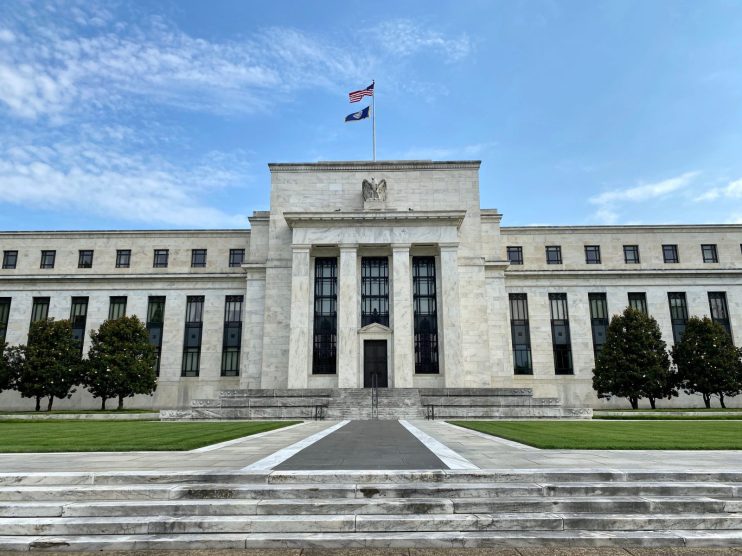Eyes turn to the Federal Reserve as markets await US election result

As markets nervously awaited the results of today’s chaotic presidential election, investors’ eyes turned to the US Federal Reserve’s meeting tomorrow.
Traders were digesting the state of play so far, and seemed to think that the most likely outcome is a president who doesn’t have control of congress.
It comes after President Donald Trump fared far better than the polls expected, making the race against Democrat Joe Biden too close to call.
Broadly – and with big caveats in place – investors say that this tight race will be worse for growth than a clean win either way.
And they say it could mean the Fed has to take monetary stimulus action in the near future.
US election: Markets expect less stimulus and lower growth
Markets have cut their bets on fiscal stimulus as results have come in. They had bid up stocks and bond yields yesterday amid hopes of a solid Biden win, more stimulus, and higher growth and inflation.
“The loudest signal for me… is the reversal in the US Treasury market,” said John Hardy, head of FX strategy at Saxo Bank.
“We’re seeing a very profound bid into the long end of the US bond market, which is seeing yields crushed back lower.” Hardy said this suggested that investors thought stimulus will now be less forthcoming – a worse outcome for growth and bonds.
The yield on the 10-year Treasury bond was last down a steep 0.13 percentage points to 0.769 per cent.
Ariel Bezalel, head of fixed income strategy at Jupiter Asset Management, said in a note to clients that a Biden presidency and Republican Senate would be bad for growth.
“Any fiscal stimulus package will likely be subject to delays and obstructions.”
What will the Fed do?
Going into the election, some analysts predicted that market disruption amid a disputed election could cause the Fed to step in with support.
Yet the market reaction has so far been orderly, with stocks up despite bond yields falling.
Most investors think the Fed will stay in “wait and see” mode during its meeting tomorrow.
Hardy said the Fed is simply most likely to “continue to bang on with their emphasis on the need for fiscal” stimulus.
Yet Hardy and others said the Fed was likely to have to do more in the near future. The economy is already slowing and coronavirus cases are surging.
David Page, head of macro research at Axa Investment Managers, said: “With fiscal policy providing less support for the economy, the Federal Reserveis likely to have to provide more monetary policy support.”
He said this does not necessarily mean the Fed will accelerate asset purchases, although this is a possibility in the future.
“But it does mean that asset purchases are likely to be in place and rates on hold for longer than in other electoral scenarios.”
The Fed could clarify its view of the path of bond purchases, as well as its recent alterations to its inflation target, experts said.
Hardy said the Fed would have to look beyond more bond-buying. He said this is less likely to be effective when “the Treasury already has a huge stockpile of funds”.
The options include tinkering with loan programmes, he said. “They’ll have to start going past their mandate. [But] at this point on election night I haven’t cobbled together what they’ll do.”